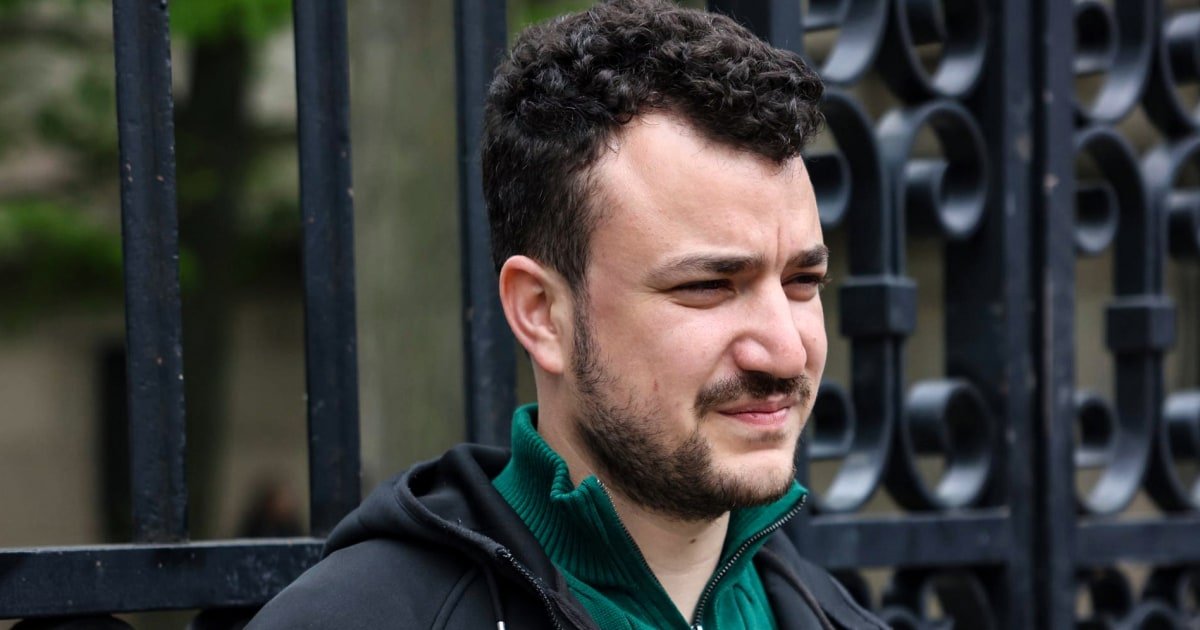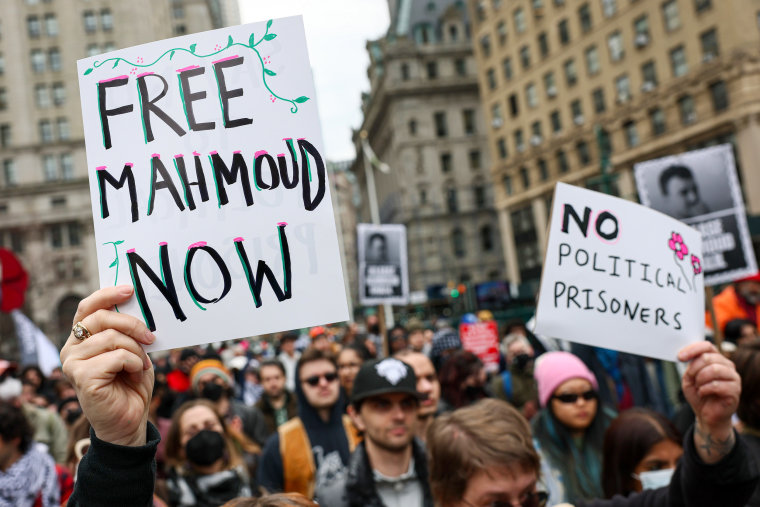Education
What’s next for Mahmoud Khalil, the Columbia student facing deportation over his pro-Palestinian activism?

Mahmoud Khalil, the Columbia University graduate student who was arrested and detained because of his pro-Palestinian activism, is scheduled to return to court next month in his battle with the Trump administration over his possible deportation.
His case has become a test of President Donald Trump’s pledge to combat antisemitism and deport noncitizen college activists who the Department of Homeland Security said “led activities aligned to Hamas, a designated terrorist organization.”
U.S. District Judge Jesse Furman of the Southern District of New York ruled Wednesday that Khalil’s legal challenge to his detention should proceed in federal court in New Jersey, where he was briefly held when his attorneys filed a petition alleging his arrest and detention violated his right to due process and his First Amendment right to free speech.
Furman said his order blocking the government from deporting Khalil will remain in effect as the case proceeds.
Khalil, 30, who holds a green card granting him permanent residency in the U.S., is being held at the Central Louisiana ICE Processing Center, more than 1,000 miles from his home in New York City. His legal team is trying to get him released.
Khalil has a separate deportation case in Louisiana, where he appeared for a brief court hearing Friday as his lawyers challenged his arrest and detention, arguing the government’s decision to send him away to the remote facility in Jena, Louisiana, impeded their ability to represent him.
“We are ready to fight just as hard for Mr. Khalil in the district of New Jersey,” said Amy Greer, a lawyer for Khalil. “He was taken by plainclothes federal agents, transferred in the middle of the night across state lines, and has been detained for over a week now, all because of his advocacy for Palestinian freedom.”
His lawyers have also said that Khalil should be released because he and his wife, Noor Abdalla, a U.S. citizen, are awaiting the birth of their first child next month. Khalil is an Algerian citizen of Palestinian descent.
The Trump administration said Khalil was moved to Louisiana because detention centers in the Northeast are overcrowded and there was a bedbug infestation at the New Jersey detention center where he was held after he was arrested March 8 outside his apartment.
Khalil said in a court declaration on Monday that when he was at the detention center in Elizabeth, New Jersey, for a night, he “did not hear anyone mention bedbugs.” He also said it appeared that other people processed at the site around the same time as he was were allowed to remain in New Jersey.The Trump administration argues that Khalil should be deported under the Immigration and Nationality Act, which allows noncitizens to be deported if the secretary of state determines their presence in the United States could adversely affect foreign policy.
Khalil is not facing any publicly known criminal charges.
“It’s almost unprecedented to invoke a provision like this,” said Marc Van Der Hout, one of Khalil’s attorneys. “The government is clearly going after him because they don’t like what he says about what’s going on in the Middle East.”

At Friday’s hearing in immigration court in Louisiana, Khalil’s legal team was allowed more time to review the case before both parties return on April 8. Van Der Hout attended the hearing via video conference.
The Department of Homeland Security has said Khalil “led activities aligned to Hamas, a designated terrorist organization.”
White House press secretary Karoline Leavitt said on March 11 that Khalil organized protests that disrupted the campus, harassed Jewish students and distributed pro-Hamas propaganda.
Samah Sisay, another lawyer for Khalil, denied the Trump administration’s claims, saying there is no evidence he provided support of any kind to a terrorist organization.
Sisay told NBC News on Monday that regardless of where the case challenging his arrest will play out, “our ultimate goal is to get our client out” and to continue fighting for Khalil’s release.
“Every day that Khalil is in detention is justice denied,” Sisay said. “He should not continue to be punished for the government’s unlawful action. He can be released while fighting this.”
Sisay said Khalil’s continued incarceration could also have major health risks for his wife’s pregnancy with the “immense stress that’s being put on her.”
